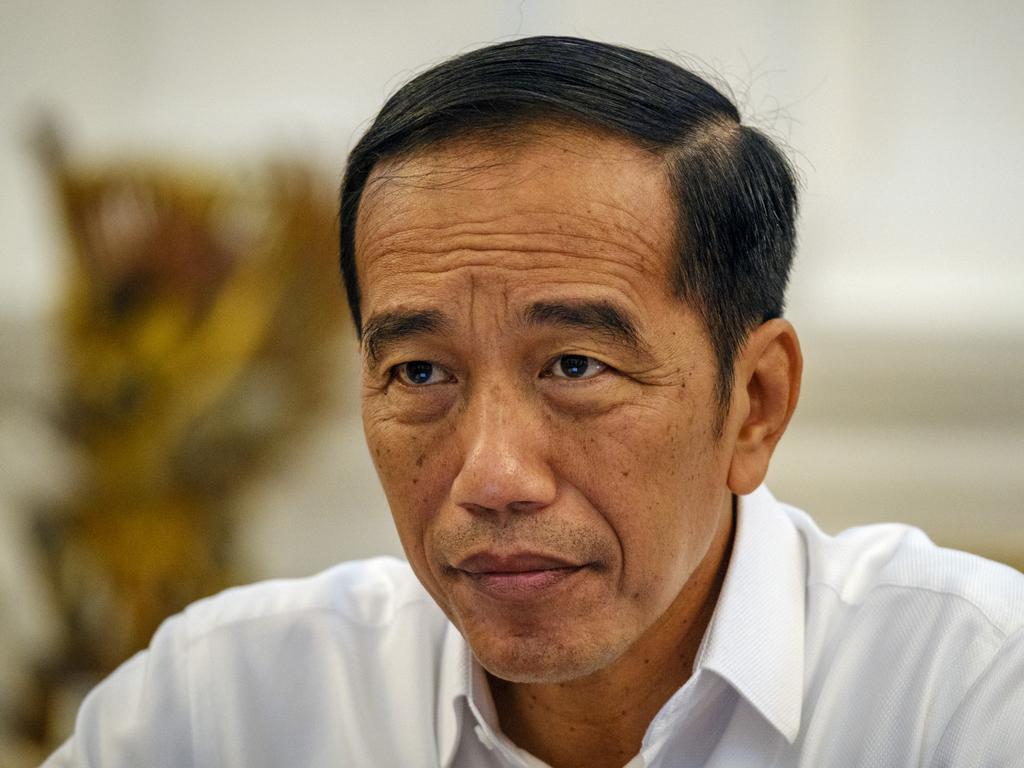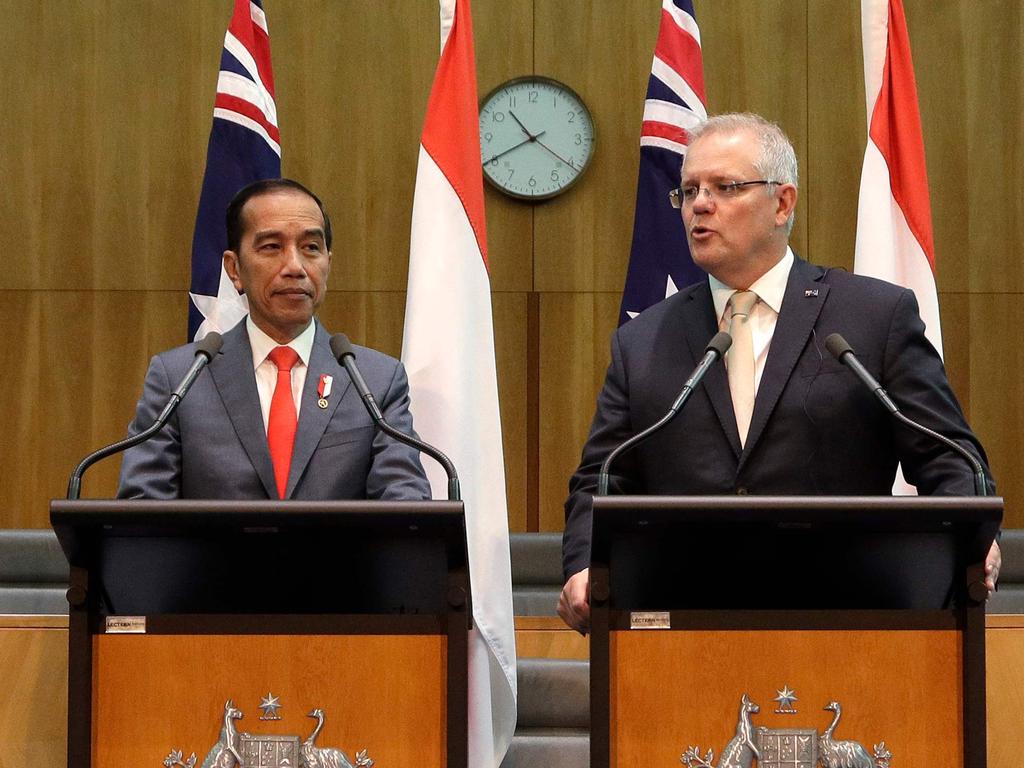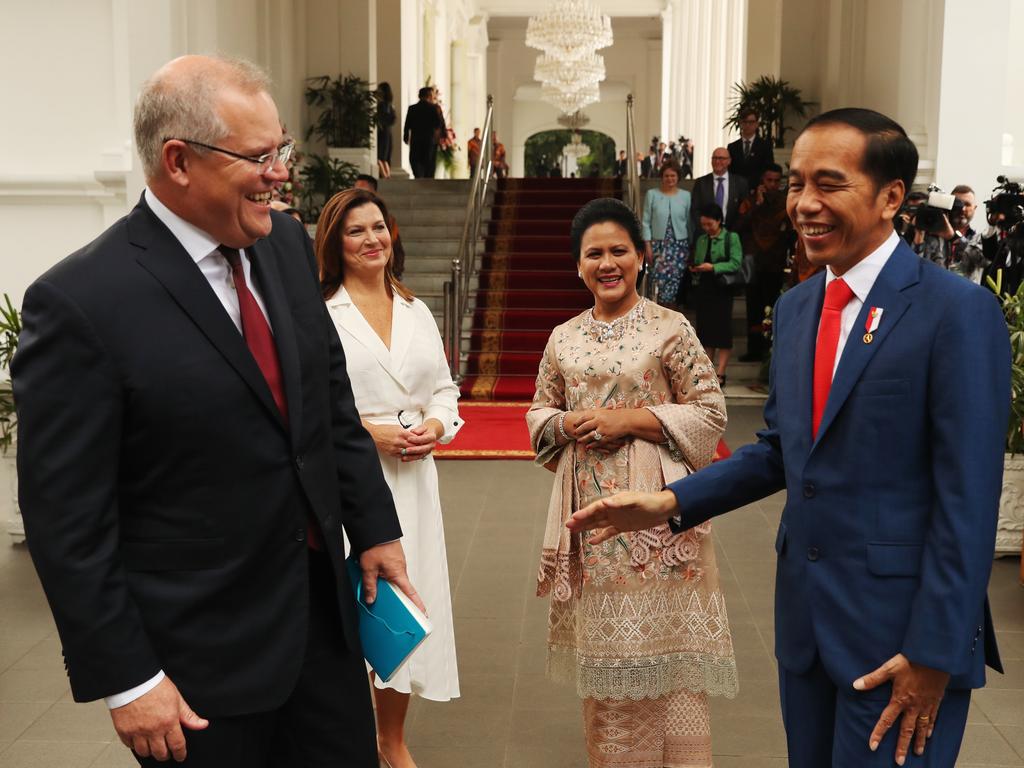Coronavirus: Jokowi and governor at loggerheads on capital shutdown
Indonesian President Joko Widodo is under pressure to lock down the teeming capital of Greater Jakarta.

As Indonesia grapples with one of the world’s highest COVID-19 death rates, President Joko Widodo is under pressure to lock down the teeming capital of Greater Jakarta, which is now the epicentre of the country’s outbreak.
On Thursday night, Jakarta Governor Anies Baswedan announced an effective lockdown of the city when he told its 10 million residents “not to leave Jakarta unless it is a very urgent matter”.
“Don’t leave, just stay. At least for the next three weeks, don’t go anywhere. Just stay in Jakarta,” he said, days after Jokowi said only he had the power to order a lockdown and had no intention of doing so.
The world’s fourth-most populous country had gone from zero reported cases to 369 in less than three weeks with a death toll of 32, higher than any other Southeast Asian nation.
Seventeen of those deaths were in Jakarta, where the city runs on an army of informal workers who are paid only if they work.
Indonesia’s handling of the outbreak has improved markedly since Jokowi appointed three-star general Doni Monardo last Friday to head the national COVID-19 taskforce, replacing the widely pilloried health minister who infamously urged Indonesians to pray but failed to institute strict testing and tracing protocols.
About 700,000 rapid testing kits have been ordered from China and South Korea and more labs approved for test analyses. The government has closed many tourist sites for disinfection and urged everyone who can to work, study and pray from home.
It has also set aside Galang island, once used to house Vietnamese refugees, as a quarantine site.
On Friday, Jokowi’s former vice-president Jusuf Kalla, now head of the Indonesian Red Cross, backed calls for lockdowns similar to those imposed in The Philippines and Malaysia, as well as travel restrictions during the Eid holiday.
Mr Kalla said 49 out of 132 hospitals across the country designated to accept coronavirus patients were not ready, and that the number of COVID-19 cases was likely vastly underestimated.
Many believe Jokowi’s reluctance to impose a lockdown is out of concern over how it would affect tens of millions of poor Indonesians without savings who could not survive a prolonged shutdown.
Endy Bayuni, a senior editor at the Jakarta Post, said Jokowi likely feared a repeat of the May 1998 riots in which months of financial hardship boiled over into mass violence and looting across the city. “Conditions were similar then; severe economic crisis, people with no jobs, no income, no food on the table,” he said. “ It was very easy for them to get really emotional and although the riots in May 98 were organised — people say by some in the military — the poor people took to the streets and looted shops and markets.
“I think that’s one of the biggest reasons why Jokowi has ruled out lockdowns. The Jakarta Governor thinks differently and wants a lockdown because he knows it’s the only way to stop the growth in positive COVID-19 cases.
“So there is now a big debate among the political elites.”
Bayuni said Indonesia was heading in that direction anyway with the suspension of visa-on-arrival, meaning the country is closed to most international visitors from Saturday.
Some risk consultancies are warning clients of the potential for socio-economic tensions to spill over in Indonesia if political groups start scapegoating sections of the community, as they did Chinese Indonesians in 1998.
Puji Maharani, a development sector worker from West Java, said she too was anxious about the potential for social breakdown, particularly during the Islamic fasting month of Ramadan, which begins mid-April, should the ban on religious mass gatherings continue. “We have already seen how the religiously conservative have undermined (protocols around) coronavirus by still going to religious gatherings,” she said.
“I’m not sure how Indonesians will deal with Ramadan and Eid this year with this pandemic looming and the chance of an extended period of social distancing.”







To join the conversation, please log in. Don't have an account? Register
Join the conversation, you are commenting as Logout